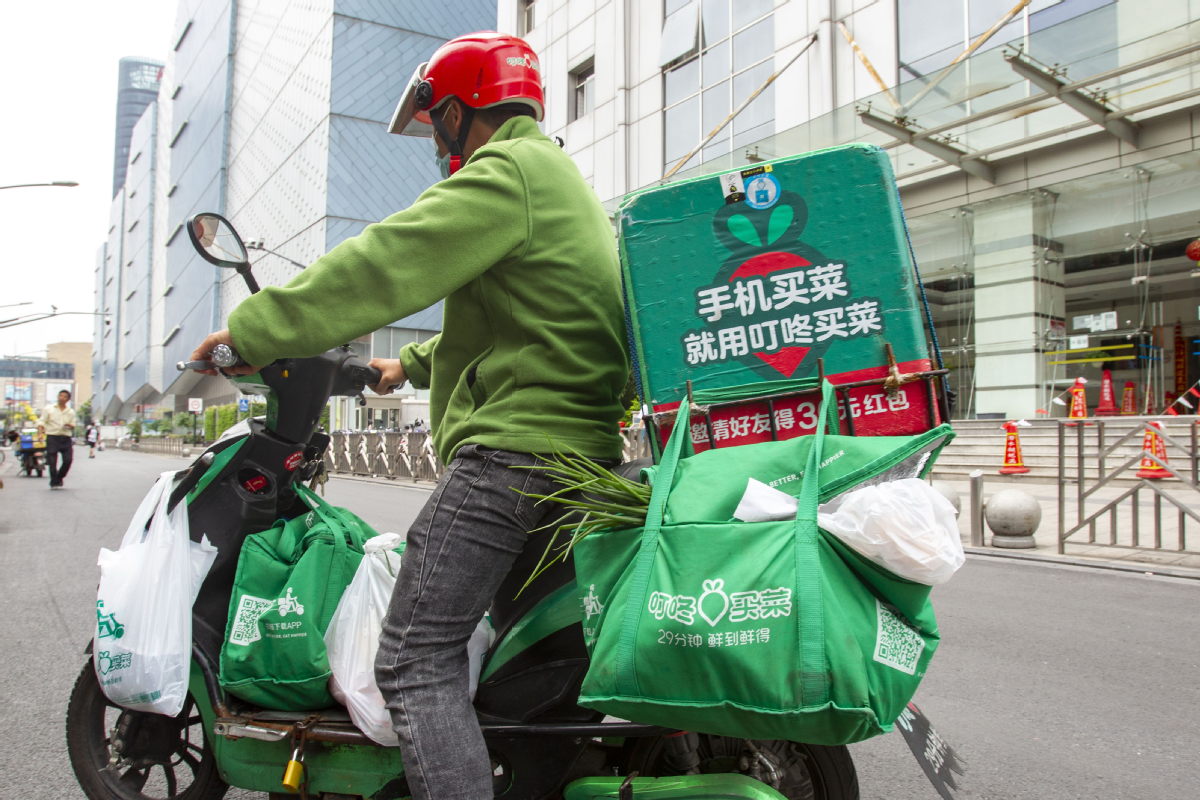Chinese digital economy gets big, 'fresh' boost


Dingdong Maicai, another fresh produce e-commerce platform, is also ramping up efforts to expand its presence across the nation this year. In February, the daily orders of the platform surpassed 600,000, with the revenue reaching more than 1.2 billion yuan.
The Shanghai-based startup said the total number of front-end warehouses will grow from more than 600 to 1,100 nationwide this year, and about 30,000 new jobs will be created. Its front-end warehouses now cover Shanghai, Hangzhou, Ningbo and Beijing.
At present, the monthly order growth rate has surpassed 200 percent in Beijing, and the company also plans to open more than 200 front-end warehouses in the city this year.
Zhao Yue, a senior analyst at Beijing-based market consultancy Analysys, said the monthly active users of fresh-food e-commerce platforms may have declined as the contagion came under increasing control in China. These platforms are banking on providing coupons and discounts, as well as launching promotional events and membership drives to enhance the loyalty and stickiness of users.
"A batch of fresh produce e-commerce companies will coexist in the industry in the future. However, it still needs time for such enterprises to achieve profitability, and the key lies in how to use data to improve operational efficiency and reduce costs. To refine their operations, enterprises should further explore aspects like marketing, scenarios and supply chain."




































